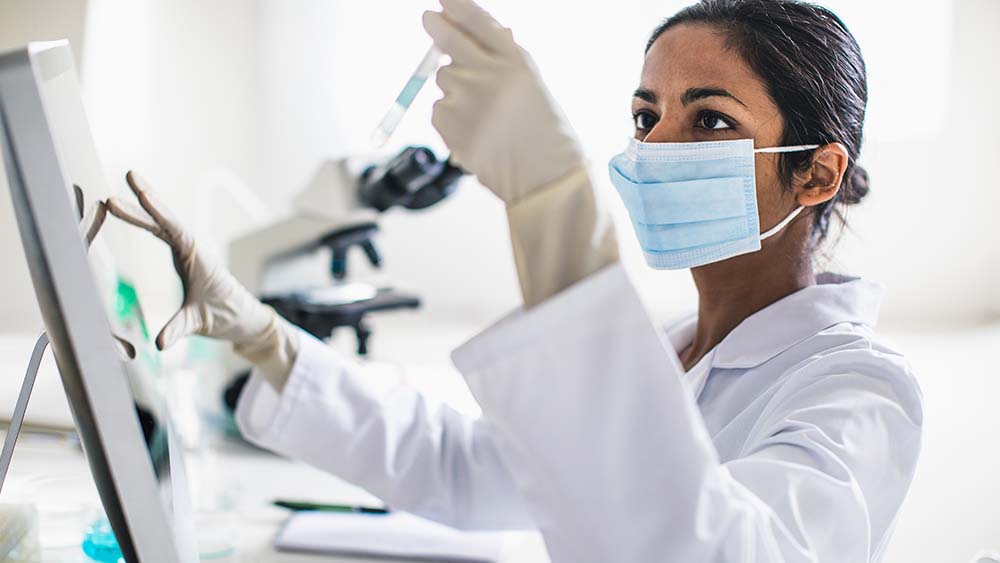
Researchers studying the blood of patients with COVID-19 have found a “signature” protein pattern in patients with severe symptoms.

Researchers studying the blood of patients with COVID-19 have found a “signature” protein pattern in patients with severe symptoms.
What you need to know
Our bodies make proteins to fight off infections. Researchers studying these proteins in people infected with COVID-19 have found a pattern, or chemical “signature,” in some people with severe disease. Understanding this signature might help explain why some people with COVID-19 get much sicker than others.
What did the researchers do?
Each cell in our body has chemical proteins in it. A science called proteomics looks at these proteins and how they interact. A team of researchers at Massachusetts General Hospital (MGH) and the Broad Institute used proteomics to look at blood samples from MGH patients with and without COVID-19.
Patients who came to the emergency room with respiratory symptoms similar to those of COVID-19, such as shortness of breath, were enrolled in the study and provided an additional blood sample with their routine bloodwork. Of the 384 patients enrolled, 306 tested positive for COVID-19, while the other 78 did not. Additional blood samples were collected from hospitalized study participants at three and 10 days after admission.
The researchers then studied the proteome (protein composition) of each blood sample, looking for similarities and differences. They compared these findings with the patients’ outcomes — whether their illness got better or worse, how severe the disease got, and whether they survived. Having three samples from each patient helped the researchers see how COVID-19 affected the patients’ immune systems over time.
This research was supported by the National Center for Advancing Translational Sciences.
What did they find?
The human body makes more of certain proteins when fighting off an infection. Most people with COVID-19 had similar levels of these proteins, which researchers expected to see as patients’ immune systems fought the virus. But patients with more severe disease had higher levels of several different proteins. One of those proteins, called interleukin-6, rose and then dropped in patients with severe disease who survived. In patients who died, levels of that protein rose — and just kept rising. Several studies are underway to test the efficacy of interleukin-6 blockers against COVID-19, as researchers believe that blocking interleukin-6 may be a way to help treat severe disease.
Why is this research important?
COVID-19 is an unpredictable disease. Some people have mild symptoms or no symptoms at all, while others get extremely sick and even die. Understanding how COVID-19 affects body chemistry — and the differences between mild and severe cases — may help researchers find better ways to prevent and treat COVID-19.
Where can I go to learn more?
How Scientists Launched a Study in Days to Probe COVID-19’s Unpredictability
The Broad Institute details how they collaborated with MGH at the start of the COVID-19 pandemic to quickly begin gathering data.
How Severe COVID-19 Can Tragically Lead to Lung Failure and Death
Dr. Francis Collins, Director of the National Institutes of Health, shares other research about severe cases of COVID-19.
Sources
Filbin, M. R., Mehta, A., Schneider, A. M., Kays, K. R., Guess, J. R., Gentili, M., Fenyves, B. G., Charland, N. C., Gonye, A. L. K., Gushterova, I., Khanna, H. K., LaSalle, T. J., Lavin-Parsons, K. M., Lilley, B. M., Lodenstein, C. L., Manakongtreecheep, K., Margolin, J. D., McKaig, B. N., Rojas-Lopez, M., . . . Goldberg, M. B. (2021). Longitudinal proteomic analysis of severe COVID-19 reveals survival-associated signatures, tissue-specific cell death, and cell-cell interactions. Cell Reports Medicine, 2(5), 100287. https://doi.org/10.1016/j.xcrm.2021.100287
Gower, T. (2021, May 4). Why some die, some survive when equally ill from COVID-19. The Harvard Gazette. Retrieved June 4, 2021, from https://news.harvard.edu/gazette/story/2021/05/researchers-identify-protein-signature-in-severe-covid-19-cases/

News and Stories
Read stories about the efforts underway to prevent, detect, and treat COVID-19 and its effects on our health.
 An official website of the United States government
An official website of the United States government

